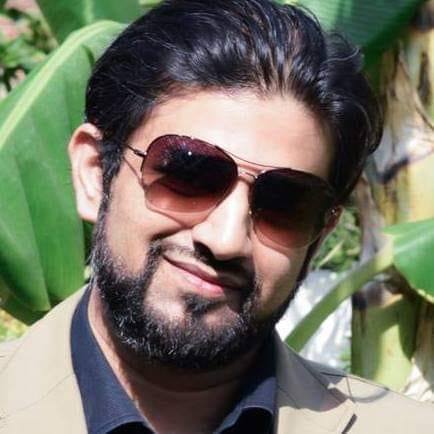
Divorce issue

Divorce issue
The four schools of Jurisprudence in Ahlus Sunah are of the opinion that three divorces pronounced together shall count as three.
Imam an- Nawawi (rah) the top- notch commentator of Sahih Muslim states:
أنت طالق ثلاثا فقال الشافعي ومالك وأبو حنيفة وأحمد وجماهير العلماء من السلف والخلف : يقع الثلاث . وقال طاوس وبعض أهل الظاهر : لا يقع بذلك إلا واحدة
Translation: Whosoever gives three divorces (in a go) then Shafi, Malik, Abu Hanifa, Ahmed, and Vast majority of scholars from Salaf (predecessors) and later to come have said that all three will take place. Tawus and some literalists said that only 1 would be applied [Sharh Sahih Muslim by Imam an- Nawawi, Volume No. 1, Page No. 478]
The Salafis, on the other hand, say that pronouncing three divorces in a go will count as one. The Shias are of the opinion that no divorce shall apply if three divorces are pronounced all together and one needs two witnesses on divorce issue.
All schools rely on same verses in Qur’an but interpret them differently.
The 4 schools of Ahlus Sunnah say that the verses in Surah al- Baqarah are clear and it does not mention any time interval between three divorces.
Qur’an states: A divorce is only permissible twice: after that, the parties should either hold Together on equitable terms, or separate with kindness… (Yusuf Ali: 2:229)
In the next ayah it states: So if a husband divorces his wife (irrevocably), He cannot, after that, re- marry her until after she has married another husband and He has divorced her… (Yusuf Ali: 2:230)
The four Sunni schools say: There is absolutely no condition of time periods in these verses, whether the Talaaq (divorce) is given instantly or in intervals it will incur in both cases.
The Salafis in justification of their viewpoint quote this verse:
O Prophet, when you [Muslims] divorce women, divorce them for [the commencement of] their waiting period and keep count of the waiting period, and fear Allah… (Sahih International: 65:1)
From this verse the Salafis and even Shias derive that one is only allowed to give divorce after each menstrual periods. The Hanafi School and other schools also accept that best procedure for divorce is to wait for prescribed periods and it is Bidah (blameworthy innovation) to give three divorces in a go. The Salafis and Shia say that when you accept it to be Bidah then how come they be counted as three? The 4 Schools of jurisprudence reply that, in spite of it being Bidah it does not mean they will not count.
The proofs of four schools are in abundance. Here are some
Imam al- Bayhaqi (rah) has narrated overwhelming hadiths from Ibn Abbas (ra) in this regard, we shall present the whole explanation of Imam al- Bayhaqi along with the hadiths which he showed
He writes:
رواه مسلم في الصحيح عن إسحاق بن إبراهيم وهذا الحديث أحد ما اختلف فيه البخاري ومسلم فأخرجه مسلم وتركه البخاري وأظنه إنما تركه
لمخالفته سائر الروايات عن بن عباس
عن عكرمة عن بن عباس والمطلقات يتربصن بانفسهن ثلاثة قروء إلى قوله وبعولتهن أحق بردهن الآية وذلك أن الرجل كان إذا طلق امرأته
فهو أحق برجعتها وان طلقها ثلاثا فنسخ ذلك فقال الطلاق مرتان الآية
أن سعيد بن جبير أخبره أن رجلا جاء إلى بن عباس فقال طلقت امرأتي ألفا فقال تأخذ ثلاثا وتدع تسعمائة وسبعة وتسعين ورواه عمرو بن مرة
عن سعيد بن جبير عن بن عباس أنه قال لرجل طلق امرأته ثلاثا حرمت عليك
عن مجاهد قال قال رجل لابن عباس طلقت امرأتي مائة قال تأخذ ثلاثا وتدع سبعا وتسعين
عن مجاهد قال سئل بن عباس عن رجل طلق امرأته مائة قال عصيت ربك وبانت منك امرأتك لم تتق الله فيجعل لك مخرجا من يتق الله يجعل له مخرجا يا أيها النبي إذا طلقتم النساء فطلقوهن في قبل عدتهن
Translation: The narration of Muslim (i.e. of Ibn Abbas which proves that 3 divorces were considered one during time of Prophet, Abu Bakr, and initial phase of Umar, refer to hadith #3493 in Online version) comes from Ishaaq bin Ibrahim (and from Tawus), It is one of those hadiths in which Imam Bukhari and Muslim have differed “IT IS NARRATED BY MUSLIM BUT REJECTED BY BUKHARI” and in my opinion Imam Bukhari rejected it because this narration contradicts the many other narrations of Ibn Abbas (i.e. they prove opposite to this one)
Ikrama narrates from Ibn Abbas (ra) who said: A (man) used to turn (to his wife) after three divorces, however it is abrogated by the ayah which states: A divorce is only permissible twice… (2:229)
Saeed bin Jabeer (ra) narrates from Ibn Abbas (ra): Anyone who gives his wife three divorces then she becomes unlawful for him.
Mujahid narrates that a man asked Ibn Abbas (ra): I have given my wife 100 divorces, in reply (Ibn Abbas) said: Take Three (i.e. they are applied) whereas leave the remaining ninty seven.
It is also narrated by Mujahid that one man gave 100 divorces to his wife , Ibn Abbas said: You have disobeyed your Lord and your wife has gone out of wedlock as you did not fear Allah and Allah has not kept any leave way for you in this..
(Then many ahadith are narrated from Ata, ‘Amr bin Dinaar, Malik bin Harith, which proves that the hadith of Tawus is his mistake and becomes irregular)
End Quote -
Reference: Sunnan al Baihaqi al Kubra, Volume No. 7, Page No. 337.
There is a long hadith in Sahih Bukhari in this regard, but we shall only show the relevant part:
Volume 7, Book 63, Number 228: (Sahih Bukhari – Book of Divorce)
Narrated Sahl bin Sad As- Sa'idi:… Uwaimir said, "O Allah's Apostle! If I should now keep her with me as a wife, then I have told a lie. "So he divorced her thrice before Allah's Apostle ordered him. (Ibn Shihab said: So divorce was the tradition for all those who were involved in a case of Lian.)
This hadith, according to four Sunni schools proves that three divorces were pronounced in one gathering and they were applied by Prophet (Peace be upon him).
Imam an- Nawawi (rah) writes under this hadith: The Shafis have derived from this hadith that It is allowed to give three divorces in a sitting [Sharh Sahih Muslim, Volume No. 1, Page No. 489]
Imam Abu Dawud explains:
فَطَلَّقَهَا ثَلاَثَ تطْلِيقَاتٍ عِنْدَ رَسُولِ الله صلى الله عليه وسلّم، فَأَنْفَذَهُ رَسُولُ الله صلى الله عليه وسلّم
Translation: Uwaimir (ra) gave “THREE DIVORCES INFRONT OF PROPHET (PEACE BE UPON HIM)” and the Prophet (Peace be upon him) “IMPLEMENTED THEM” [Sunnan Abu Dawud Hadith # 2246]
The four Sunni schools say that although it is sinful to pronounce three divorces in a go but still they shall be applied. They cite the following proofs.
لَّقْتُهَا ثلاثاً كانَ يَحِلُّ لِي أَنْ أُرَاجِعَهَا، قالَ: «لا، كانتْ تَبِيْنُ منكُ وتكونُ معصيةً.
Translation: Ibn Umar (ra) asked: O Allah’s Messenger (Peace be upon him) Can my wife be Halal upon me and Can I turn back after giving three divorces? The Prophet (Peace be upon him) said: She will get “SEPERATED” from you and this action of yours will be “SINFUL” [Sunnan al- Daraqutni, Volume No.4, Page No. 20]
This hadith contains Shu’aib bin Ruzaiq who is Majhool (unknown).
Another hadith they use is:
عن نافع قال: «كان ابن عمر يقول: من طلق امرأته ثلاثا، فقد بانت منه امرأته، وعصى ربه تعالى وخالف السنة
Translation: Ibn Umar (ra) said: If a woman is divorced thrice (together) then she becomes “SEPERATED” but this is also a “SIN AND ALSO AGAINST SUNNAH” [Sunnan al Daraqutni (4/21)]
This hadith contains Muhammad bin Ishaq who is Mudallis of 4th category and he is narrating with “AN.” However due to different chains these hadiths become “Hasan”
Still according to 4 schools even if giving three divorces in a go is sinful, they shall be applied. The four schools say that such hadiths prove pronouncing 3 divorces all together, had that not been the case then it would not have been called Sinful and against Sunnah.
There are many hadiths which 4 schools of jurisprudence use, we have not shown them due to brevity issue. However in conclusion we would like to quote leading Salafi authority of today i.e. Salih Munajid of islamqa website. He states:
According to the Shaafi’i madhhab and the majority of other madhhabs, giving three talaaqs at once counts as three separate talaaqs and is irrevocable, and the couple cannot remarry until the woman has been married to and divorced from another man. [Salih Munajid, islamqa.info/en/2373]
Now let us come towards proofs cited by Salafis. We have shown one verse of Qur’an above which Salafis use, but now let us turn towards hadiths:
Ibn 'Abbas (Allah be pleased with them) reported that the (pronouncement) of three divorces during the lifetime of Allah's Messenger (ﷺ) and that of Abu Bakr and two years of the caliphate of Umar (Allah be pleased with him) (was treated) as one. But Umar b. Khattab (Allah be pleased with him) said: Verily the people have begun to hasten in the matter in which they are required to observe respite. So if we had imposed this upon them, and he imposed it upon them. [Sahih Muslim, Hadith # 3491]
From this hadith Salafis derive that during the time of Prophet, Abu Bakr, and Umar’s initial period three divorces were counted as one.
There are many other hadiths which they use in this regard, but this one is most clear of them all. We have already shown explanation of Imam al- Bayhaqi (rah) in regards to this hadith and how it is not to be followed.
The Shia stance that not even 1 divorce shall apply and one needs at least 2 witnesses. This is also based on proofs.
Qur’an states: And if you fear a breach between the two, then appoint judge from his people and a judge from her people; if they both desire agreement, Allah will effect harmony between them, surely Allah is Knowing, Aware. (Shakir: 4:35)
As divorce is a very serious issue and it can break ties between two families, therefore Shias derive from this verse that one needs to have two judges (or arbiters) for divorce to take place.
It has been shown above from hadiths that pronouncing three divorces in a go is Bidah and Sinful, therefore Shias say that how come something being Bidah and Sinful be applied even as one divorce?
Reconciliation: All of them have sound proofs from Qur’an and hadiths. However the stance of Ahlus Sunnah four schools is most strongest. One should follow the dominant school of thought in the country he/she lives in. The author’s viewpoint is that Salafi and Shia stance is not strong. Anyways divorce is a very serious issue. One mostly pronounces divorce in extreme anger (which is also not applicable according to Sunni hadiths, provided witnesses testify that person is known for extreme anger in which he forgets what he says) and it can lead to serious consequences. We have experienced many family ties being broken due to pronouncing 3 divorces in a go. People should study the Islamic ruling on this issue properly and should be well aware of it, rather than picking and choosing afterwards. Which people should not do.
In this chapter we would like to make short discussion about concept of “Halalah” in Islam. Halalah means that a divorced woman can only marry her ex husband after she has married another man and he has divorced her after consummation of marriage (see: Qur’an 2:230 & Sahih Muslim Book 8, Hadith 3357). The intentional or pre planned Halalah is severely criticized in hadith and all parties involved in intentional halalah are cursed in many hadiths. Here is the following hadith which all people should read.
Narrated Ali ibn AbuTalib: (The narrator Isma'il said: I think ash- Sha'bi attributed this tradition to the Prophet)
The Prophet (ﷺ) said: Curse be upon the one who marries a divorced woman with the intention of making her lawful for her former husband and upon the one for whom she is made lawful. [Sunan Abi Dawud, Book 11, Hadith # 2071]
There is however debate that if intentional halalah is done then will the wife be permissible on previous husband? There is no doubt that this practice is disgusting and all parties involved in it shall be cursed, but God forbid if intentional halalah is done then the woman will be permissible on previous husband as she would have gone through immense mental torture already.


